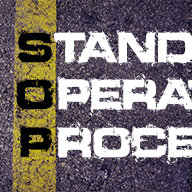Five ways to manage your top level management team

Leadership & Management
412 week ago — 5 min read
Once you have established your business organisation, it is also essential to manage its daily operations and processes. Managing and coordinating with your employees and workforce seem to be a daunting task. However, if not managed well, your business organisation can go haywire and will be difficult for you to manage. One should be equipped with planning to overcome the difficulties and challenges while dealing with the management team. In this article, we look at some ways and techniques to manage your top level management.
1. Defining HR Policies: The Human Resources department is one of the important part of every business organisation. Therefore, it is essential to keep it as secure as possible. Try to design appropriate policies for the HR and implement them. The rules, regulations and procedures should be well communicated in advance to avoid unhealthy relationships in future. Moreover, care has to be taken while designing policies by keeping the employees’ strengths and weaknesses in view. The policies should be employee friendly and should make them feel comfortable. Do not neglect their interests and design policies which are completely a one sided affair. Maintain a healthy balance between an employee and the organisation.
2. Defining roles and responsibilities: Define the appropriate responsibilities of your employees in advance. Be clear in allocating work and firmly convey the results which you are expecting. Allocate the work to a specific employee based on his/her expertise and skills. Do not overburden your employee with a tremendous workload as it can lead to inefficiency and null performance. Therefore, stay clear on assigning roles to your workforce and motivate them constantly to bring out the best results.
3. Authority and responsibility: It is a universal law that authority and responsibility go hand in hand. Moreover, with great power comes great responsibility. Therefore, maintain a proper balance between the two. Do not be authoritative and harsh on employees. It will lead to unhealthy relationships and pollute the environment of the business organisation. Try to be as soft as possible in getting your work done. Be diplomatic when required to handle your top level management team in an efficient way.
4. Review Meetings: Conduct regular meetings to monitor the progress of the work tasks and business activities. This will keep you in touch with the reality of your organisation. Ask for appropriate reports in review meetings to keep yourself updated and to maintain records for future references. Give valuable feedback in these meetings (if any) and instruct the employees about changes required. If the results upset you heavily, you can call for a separate meeting with the concerned staff and discuss the same. Try to be soft and smart while giving reviews. Being harsh and demanding will lead to chaos and unnecessary arguments. Try to train your employees at regular intervals of time to make them meet the market needs. Motivate them and push them forward to bring the best results.
5. Incentives: You know that the "fruits of hard work are always sweet", thus give your employees their due sincerely. Provide attractive incentives and mementos to your staff to keep them motivated, happy. and improve retention. This will thus indirectly signal the poorly performing employees to work efficiently. Offer special and additional benefits to best employees in the form of travel packages, discount vouchers etc to keep them accommodated in your organisation. Ensure proper annual appraisals for everyone including the middle level and top level management team. This will thus establish a healthy relationship with your employees.
To explore business opportunities, link with me by clicking on the 'Invite' button on my eBiz Card.
Image Source: Freepik
View Rupal 's profile
Other articles written by Rupal Agarwal
5 most powerful ways to implement SOPs
412 week ago
How do I reduce my operating cost?
419 week ago
Most read this week
Trending












Comments
Share this content
Please login or Register to join the discussion